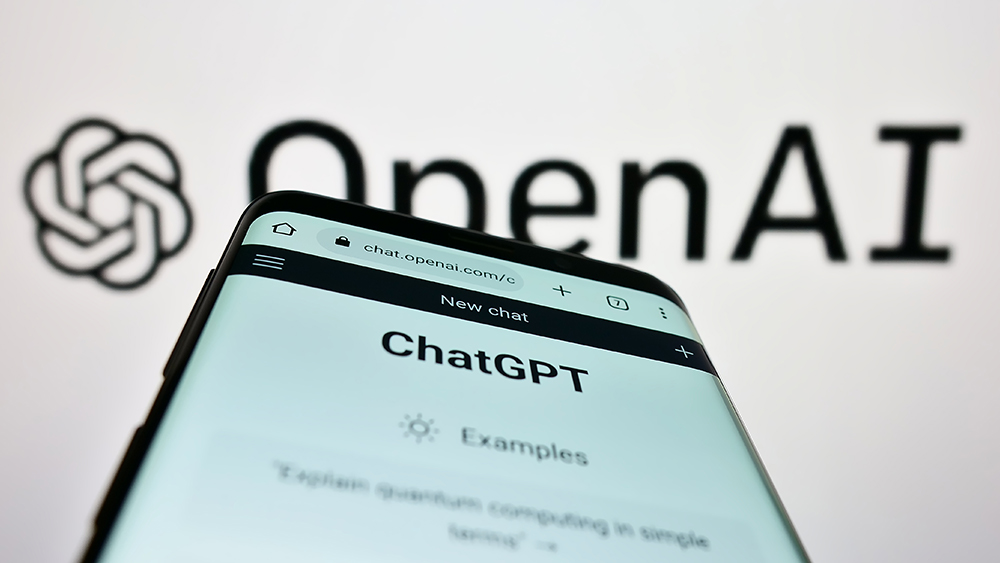Elon Musk now requiring all X users who get paid to send their personal ID details to Israeli intelligence-linked corporation
05/29/2024 / By Cassie B.

X now requires new users who wish to monetize their accounts to verify their identification with a company known as AU10TIX. While creator verification is not unusual for online platforms, Elon Musk’s latest move has drawn intense criticism because of AU10TIX’s strong ties to Israeli intelligence.
Even people who have no problem sharing their personal information with X need to be aware that the company they are using for verification is connected to the Israeli government. AU10TIX was founded by members of the elite Israeli intelligence units Shin Bet and Unit 8200. CEO Ron Atzomm was personally part of Unit 8200, which is known for surveilling Palestinians and using the information it gathers for political persecution and creating division among Palestinians by identifying potential informants. He is the son of a former treasurer for the Likud party.
Many of the company’s engineers also worked for Unit 8200. It is also known for supporting the Israeli military with intelligence gathering and surveillance.
X user CensoredMen explained why this is so dangerous: “This is an extreme security risk. Not only will regular creators have to give their ID to a company with deep ties to Israeli intelligence, but PRO-PALESTINIAN creators will also have to do the same. This is completely and totally unacceptable.”
The new measures require users to upload a head shot of themselves and a copy of their government-issued identification. A notice from X includes a consent form requiring users to agree to allow X to store their biometric data using the company’s software for up to 30 days. X claims that the data will be used “for the purpose of safety and security, including preventing impersonation.”
AU10TIX has also created identity verification systems for border controls and airports and formed commercial partnerships with companies such as Uber, PayPal and Google.
AU10TIX’s Vice President of Europe, the Middle East and Africa Sales, Edo Soroka, previously worked for the Israeli startup AnyVision, which was accused of surveilling Palestinians in the occupied West Bank, while its Chief Financial Officer, Erez Hershkovitz, previously worked for the Israeli company Voyager Labs, which was sued by Meta for using tens of thousands of fake Facebook accounts to collect data on more than half a million users.
All users should be concerned about sharing their biometric data with X
The executive director of the Israel-based Palestinian digital rights organization 7amleh, Nadim Nashif, told the Middle East Eye: “The concept of verifying user accounts is indeed essential in suppressing fake accounts and maintaining a trustworthy online environment. However, the approach chosen by X, in collaboration with the Israeli identity intelligence company ?Au10tix, raises significant concerns.
“Au10tix is located in Israel and both have a well-documented history of military surveillance and intelligence gathering… this association raises questions about the potential implications for user privacy and data security.”
Independent journalist Antony Loewenstein said he was worried that the verification process could normalize Israeli surveillance technology.
“The worldwide spread of surveillance tech, often built by veterans of the Israeli intelligence service who have spent years monitoring Palestinians under occupation, is a threat to democracy across the globe. In an age of rising ethno-nationalism, from India to Hungary to Israel, it’s vital to ask critical questions about the source and pedigree of any Israeli digital company,” he cautioned.
He also said that users need more information about how secure their data will be, where it will be stored, and who will be able to access it.
Sources for this article include:
Submit a correction >>
Tagged Under:
Au10tix, Big Tech, deep state, Elon Musk, Glitch, Israeli intelligence, personal data, privacy watch, shin bet, surveillance, tech giants, Twitter, watched, X
This article may contain statements that reflect the opinion of the author
RECENT NEWS & ARTICLES
COPYRIGHT © 2017 COMPUTING NEWS



















